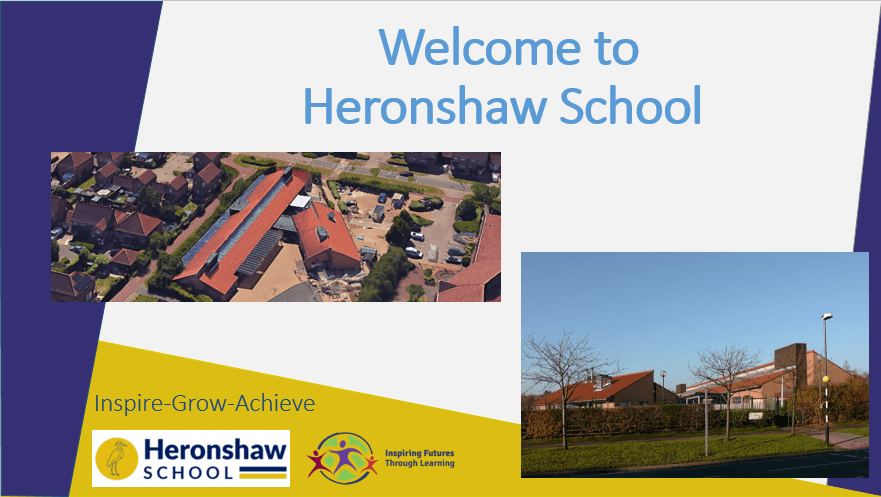Foundation Stage
Foundation at Heronshaw consists currently of 2 classes, Bears and Lions. There is capacity for 90 children and so we still have space to welcome new children. Foundation is supported by a team of highly skilled teaching assistants. Mrs Andrews is the Phase Leader for Foundation.
Our Foundation area has three classrooms, a shared area, a an additional garden area and an outdoor area for active and physical learning. We also have a mud kitchen for creative and messy exploration.
Our children come from a variety of pre-schools, nurseries and other day care providers. The experiences that children have before joining us here at Heronshaw are all very different, however we strongly believe that this diversity is a strength.

Overviews of learning
Each half term we will publish additional information about the skills and learning that will be covered in key areas of the curriculum. Please refer to the overviews when focusing on how to support your child at home. Your child's class teacher will be able to talk through any queries that you may have.

Goverment Baseline
From September 2021 the Goverment introduce a statutory baseline assessment, for every child starting in reception. This is to be completed in the first 6 weeks of starting school. The assessments consist of Literacy, communication and language and mathematical skills.
Read more about it here: 2022 information for parents: reception baseline assessment (publishing.service.gov.uk)
The Early Years Foundation Stage (EYFS) curriculum.
The first chapter of your child’s education at school begins here and includes children aged between 4-5 years. During this year of the Foundation Stage, a carefully integrated programme of learning is provided which covers seven key areas:
- Personal, Social and Emotional Development
- Communication and Language
- Physical Development
- Literacy
- Mathematics
- Understanding the World
- Expressive Arts and Design
Personal, Social and Emotional Development
In this area, we help children to:
- develop a positive sense of themselves, and others;
- form positive relationships; learn how to respect others;
- develop social skills; manage their feelings;
- understand appropriate group behaviour;
- develop confidence in their own abilities.
Communication and Language
This vital area of development focuses on providing the children with a rich tapestry of learning experiences that develop their language abilities, confidence and skills. For children, developing language is all about having the confidence to try and express themselves along with the patience to listen to others in a wide range of different situations.
Physical Development
Staff provide all sorts of exciting opportunities for the children to be active, interactive and energetic. Healthy choices in relation to food and the importance of lifelong physical activity as part of a person’s all-round well-being are also taught.
Literacy
This area is planned to encourage and support children to link sounds and letters together whilst acknowledging that all children develop at their own pace. Children have opportunities to develop their skills in reading and writing.
Mathematics
Children enjoy solving problems and the learning we invite them to take part in within mathematics provides all sorts of stimulating opportunities to develop and improve their thinking and reasoning skills.
Understanding the World
Opportunities to explore, observe and find out about people, places, technology and the environment is a key aspect of learning in this area.
Expressive Arts and Design
This area of the curriculum provides children with opportunities to share ideas, thoughts and feelings through exciting activities in art, music, movement, dance, role-play, and design and technology.
Equality in Teaching and learning
We provide all our pupils with the opportunity to succeed and to reach the highest level of personal achievement. We do this by:
- Ensuring equality of access for all pupils and preparing them for life in a diverse society
- Using materials that reflect the diversity of the school, population and local community without stereotyping
- Promoting attitudes and values that challenge any discriminatory behaviour or prejudice
- Providing opportunities for pupils to appreciate their own culture and celebrate the diversity of other cultures
- Seeking to involve all parents in supporting their child’s education
- Utilising teaching approaches appropriate for the whole school population which are inclusive and reflective of our pupils.
